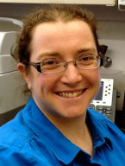DNA liquid biopsy-based prediction of cancer-associated venous thromboembolism Journal Article
| Authors: | Jee, J.; Brannon, A. R.; Singh, R.; Derkach, A.; Fong, C.; Lee, A.; Gray, L.; Pichotta, K.; Luthra, A.; Diosdado, M.; Haque, M.; Guo, J.; Hernandez, J.; Garg, K.; Wilhelm, C.; Arcila, M. E.; Pavlakis, N.; Clarke, S.; Shah, S. P.; Razavi, P.; Reis-Filho, J. S.; Ladanyi, M.; Schultz, N.; Zwicker, J.; Berger, M. F.; Li, B. T.; Mantha, S. |
| Article Title: | DNA liquid biopsy-based prediction of cancer-associated venous thromboembolism |
| Abstract: | Cancer-associated venous thromboembolism (VTE) is a major source of oncologic cost, morbidity and mortality. Identifying high-risk patients for prophylactic anticoagulation is challenging and adds to clinician burden. Circulating tumor DNA (ctDNA) sequencing assays (‘liquid biopsies’) are widely implemented, but their utility for VTE prognostication is unknown. Here we analyzed three plasma sequencing cohorts: a pan-cancer discovery cohort of 4,141 patients with non-small cell lung cancer (NSCLC) or breast, pancreatic and other cancers; a prospective validation cohort consisting of 1,426 patients with the same cancer types; and an international generalizability cohort of 463 patients with advanced NSCLC. ctDNA detection was associated with VTE independent of clinical and radiographic features. A machine learning model trained on liquid biopsy data outperformed previous risk scores (discovery, validation and generalizability c-indices 0.74, 0.73 and 0.67, respectively, versus 0.57, 0.61 and 0.54 for the Khorana score). In real-world data, anticoagulation was associated with lower VTE rates if ctDNA was detected (n = 2,522, adjusted hazard ratio (HR) = 0.50, 95% confidence interval (CI): 0.30–0.81); ctDNA− patients (n = 1,619) did not benefit from anticoagulation (adjusted HR = 0.89, 95% CI: 0.40–2.0). These results provide preliminary evidence that liquid biopsies may improve VTE risk stratification in addition to clinical parameters. Interventional, randomized prospective studies are needed to confirm the clinical utility of liquid biopsies for guiding anticoagulation in patients with cancer. © The Author(s) 2024. |
| Keywords: | adolescent; adult; child; controlled study; aged; middle aged; major clinical study; genetics; prospective study; prospective studies; neoplasm; neoplasms; disease association; carcinoma, non-small-cell lung; cohort analysis; pathology; prediction; high risk patient; confidence interval; blood; anticoagulants; anticoagulation; hazard ratio; venous thromboembolism; anticoagulant agent; non small cell lung cancer; etiology; complication; machine learning; dna sequencing; humans; prognosis; human; male; female; article; circulating tumor dna; liquid biopsy |
| Journal Title: | Nature Medicine |
| Volume: | 30 |
| Issue: | 9 |
| ISSN: | 1078-8956 |
| Publisher: | Nature Publishing Group |
| Date Published: | 2024-09-01 |
| Start Page: | 2499 |
| End Page: | 2507 |
| Language: | English |
| DOI: | 10.1038/s41591-024-03195-0 |
| PUBMED: | 39147831 |
| PROVIDER: | scopus |
| PMCID: | PMC11405286 |
| DOI/URL: | |
| Notes: | Article -- MSK Cancer Center Support Grant (P30 CA008748) acknowledged in PubMed and PDF -- MSK corresponding author is Simon Mantha -- Source: Scopus |
Altmetric
Citation Impact
BMJ Impact Analytics
MSK Authors
Related MSK Work





















